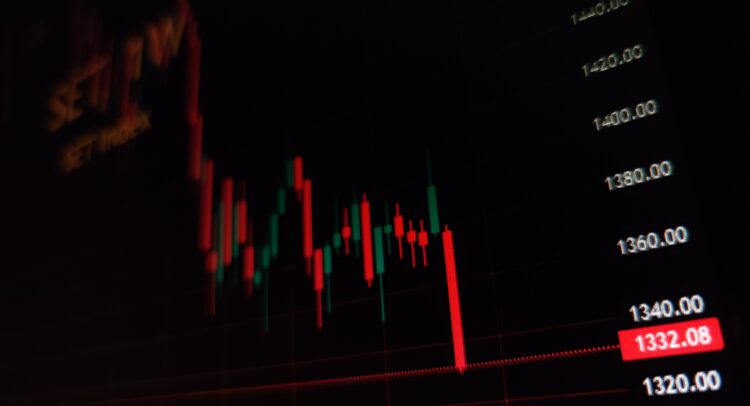Last Updated: 4:07 PM EST
Discover the Best Stocks and Maximize Your Portfolio:
- See what stocks are receiving strong buy ratings from top-rated analysts.
- Filter, analyze, and streamline your search for investment opportunities with TipRanks’ Stock Screener.
Stock indices finished today’s trading session in the red. The Nasdaq 100 (NDX), the S&P 500 (SPX), and the Dow Jones Industrial Average (DJIA) fell 0.58%, 0.29%, and 0.32%, respectively. In an interview with Yahoo Finance, billionaire hedge fund founder Ray Dalio sounded the alarm on the world’s biggest stocks by warning that they have become too expensive. Dalio specifically mentioned the “Magnificent Seven” stocks, which he believes are vulnerable to a downturn if interest rates continue to rise.
Dalio’s warning is based on his expectation that the 10-year yield will continue to rise, which could hit top-momentum stocks hard. He emphasized the importance of diversification and cautioned investors against being systematically leveraged long, as most of the world currently is. Dalio’s concerns are also driven by the U.S.’ growing debt problem, which he believes needs to be addressed.
Separately, the University of Michigan’s Consumer Sentiment Index was revised downward to 71.1 in January, which was the first decline in six months. According to Surveys of Consumers Director Joanne Hsu, the decline was broad-based and affected people across different income, wealth, and age groups.
While consumers reported stronger incomes, concerns about unemployment rose, with 47% expecting unemployment to increase in the year ahead. In addition, inflation expectations remained steady, with year-ahead expectations at 3.3% and five-year implied inflation at 3.2%.
First Published: 3:56 AM EST
U.S. stock futures traded slightly lower on Thursday morning, following an upbeat trading session in the previous day. The S&P 500 surged 0.5% to a new all-time closing high of 6,118.71 points, its first record close since December 6. Futures on the Nasdaq 100 (NDX), the Dow Jones Industrial Average (DJIA), and the S&P 500 (SPX) were down 0.2%, 0.01%, and 0.09%, respectively, at 3:52 a.m. EST, January 24.
On Thursday, the Dow Jones and the Nasdaq Composite also gained momentum, rising 0.9% and 0.2%, respectively, and inched closer to their record highs. The market rally was fueled by robust corporate earnings, optimism about AI-driven business development, and the new administration’s policy announcements.
At the World Economic Forum in Davos, President Donald Trump emphasized the use of tariffs to boost domestic manufacturing and proposed corporate tax cuts for U.S.-based manufacturers. He also urged the OPEC group to lower oil prices, suggesting this move would help lower interest rates.
Looking ahead, investors will be closely monitoring key economic data releases, such as January’s S&P Global Purchasing Managers’ Index (PMI) Flash reports for Manufacturing and Services due today. Also, the Michigan Consumer Sentiment Final estimate for January will be released today.
On the earnings front, traders will watch earnings reports from major companies like Verizon (VZ), NextEra Energy (NEE), and American Express (AXP).
Meanwhile, the U.S. 10-year treasury yield was down, floating near 4.625%. Simultaneously, WTI crude oil futures are trending higher, hovering near $74.63 per barrel as of the last check.
Elsewhere, European indices opened higher on Friday buoyed by better-than-expected results from the British luxury fashion house, Burberry (GB:BRBY). Also, investors assessed flash PMI data from major European economies along with Trump’s softened stance on tariffs.
Asia-Pacific Markets Ended Mixed on Friday
Most of the Asia-Pacific indices were mixed today after Trump indicated that he would not rush to impose tariffs on China. Also, the Chinese markets were buoyed by new measures disclosed by Beijing to encourage stock market investment.
At the same time, Hong Kong’s Hang Seng Index was up 1.86%. Also, China’s Shanghai Composite and Shenzhen Component indices gained 0.7% and 1.15%, respectively. However, Japan’s Nikkei and Topix indices declined by 0.07% and 0.03%, respectively.
Interested in more economic insights? Tune in to our LIVE webinar.









